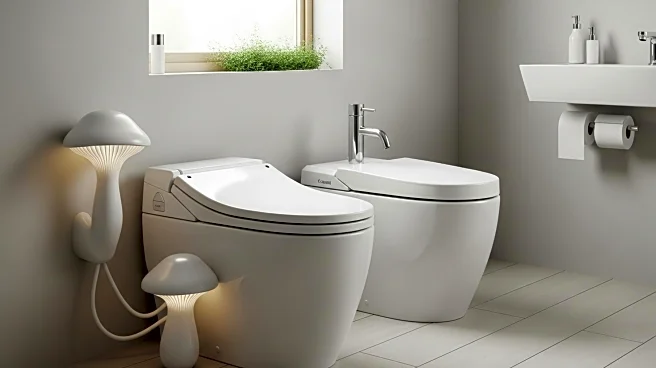What is the story about?
What's Happening?
Researchers at the University of British Columbia (UBC) have introduced the MycoToilet, the world's first mushroom-powered waterless toilet, at the UBC Botanical Garden. This innovative toilet uses mycelia, the root networks of mushrooms, to convert human waste into nutrient-rich compost. The design is sustainable and modular, requiring minimal maintenance and offering a wheelchair-accessible structure. Unlike conventional chemical toilets, the MycoToilet is environmentally friendly, using no water, electricity, or chemicals. The system separates liquid from solid waste, with fungi breaking down the latter into compost. A six-week pilot test is underway to evaluate the system's efficiency and user experience.
Why It's Important?
The MycoToilet represents a significant advancement in sustainable waste management, particularly for areas lacking plumbing infrastructure. By transforming waste into compost, it reduces reliance on chemical fertilizers and offers a cost-effective solution for remote communities and parks. The project addresses environmental concerns associated with traditional waste management systems, which often involve toxic chemicals. If successful, this innovation could lead to widespread adoption, reducing environmental impact and promoting ecological cycles. The MycoToilet's development highlights the potential of using natural processes to solve modern sanitation challenges.
What's Next?
The ongoing pilot test will provide insights into the MycoToilet's performance and user acceptance. Researchers will monitor the mycelia's ability to transform waste and assess the system's odor control capabilities. If the pilot proves successful, the MycoToilet could be deployed in various settings, including parks, municipalities, and developing regions. The project may inspire further research into mycelia-based technologies for other applications, potentially leading to broader environmental and economic benefits.
















